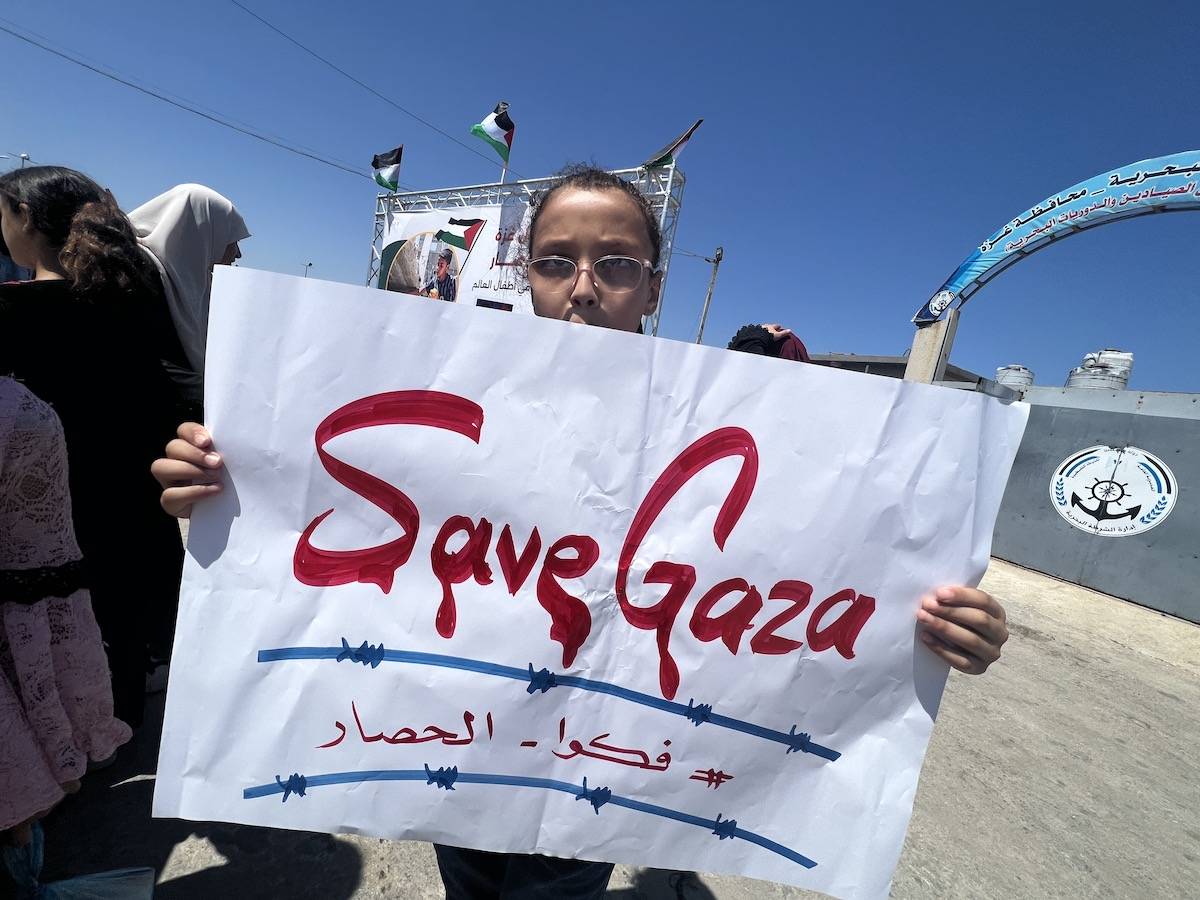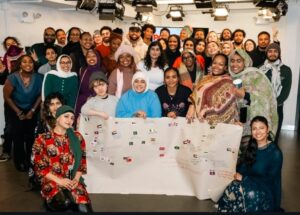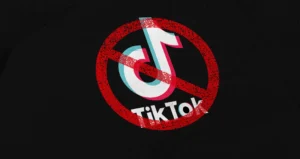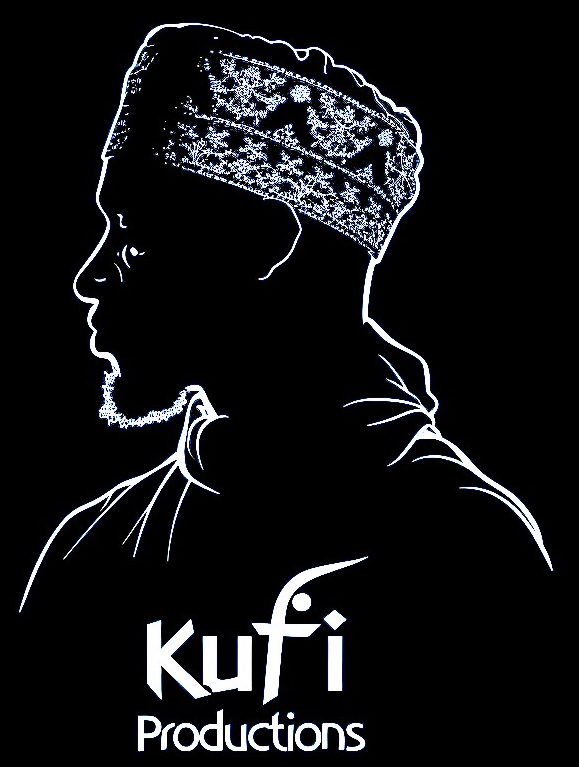The Gaza Siege (click here for Arabic version)
Gaza is not a headline.
It’s not a political talking point.
Gaza, quite simply, is a place where children are born under bombs,
where girls grow up without safety,
and fathers grow old without ever finishing their homes.
A city that washes in shrapnel and prays with a postponed loaf of bread.
Today, in Shuja’iyya, Al-Rimal, Khan Younis, and Al-Nuseirat — from east to west — there is no flour in the warehouses.
Aid trucks don’t arrive, and when they do, they don’t meet the needs of innocent civilians —
because the crossings are closed,
permissions are delayed,
intentions are barricaded,
and no voice is heard.
Hundreds of families stand in lines outside schools turned into shelters.
Each family dreams only of:
a bag of rice,
a blanket,
a broken charger cable,
or a can of baby formula.
A child in Khan Younis asked his mother:
“Mama, when will we eat normally, like other people?”
And she didn’t know how to answer —
she hasn’t eaten “normally” since October 2023.
At Al-Shifa Hospital, a nameless infant arrived —
the sole survivor of his entire family, pulled from under the rubble.
He wasn’t registered in any document,
but his tiny chest rose and fell gently, as if to say to the world:
“I am not just a number.”
This world — which reduced Gaza to numbers —
counts the dead, the wounded, the bombs…
but doesn’t see the mothers who have forgotten the sound of their own voices from too much silence.
The markets are empty.
The streets are exhausted.
The darkness is not just the absence of electricity,
it’s a suffocation of the soul.
Homes do not collapse only from missiles, but from waiting.
From missing milk.
From silent weeping.
From the smell of bread that no longer resembles life —
even the scent of lentils has become too familiar.
And yet, despite everything, Gaza still loves.
It still bakes what remains of the heart’s flour
and offers it to the children —
as if to convince them that life is still possible.
This is not a plea.
This is a record of history.
A reminder: starvation is not a “humanitarian crisis.”
It is a deliberate crime.
And those who block the flour — block hope.
And if we stay silent, then silence becomes complicit.
So wherever in the world you’re reading this:
Don’t call it “the Gaza problem.”
Speak the truth: The Gaza siege.
The starvation of Gaza.
The terrorizing of children and theft of bread from their mouths.
Then ask yourself:
How can an entire city be besieged in its sleep, its wakefulness, and its dreams?
How can an entire people be left under the rubble — and be expected to endure in silence?
Gaza is not asking for pity.
Gaza is asking for the truth to be told.
For things to be called by their name.
Gaza is not dead.
But it is bleeding — slowly.
And if we do not write,
if we do not share,
if we do not bear witness —
Who will be left to say they were here…
that they wanted to live…
and weren’t even given bread?
From Gaza,
to anyone who still has a heart.
Alaa Alburai, Kufi Productions





